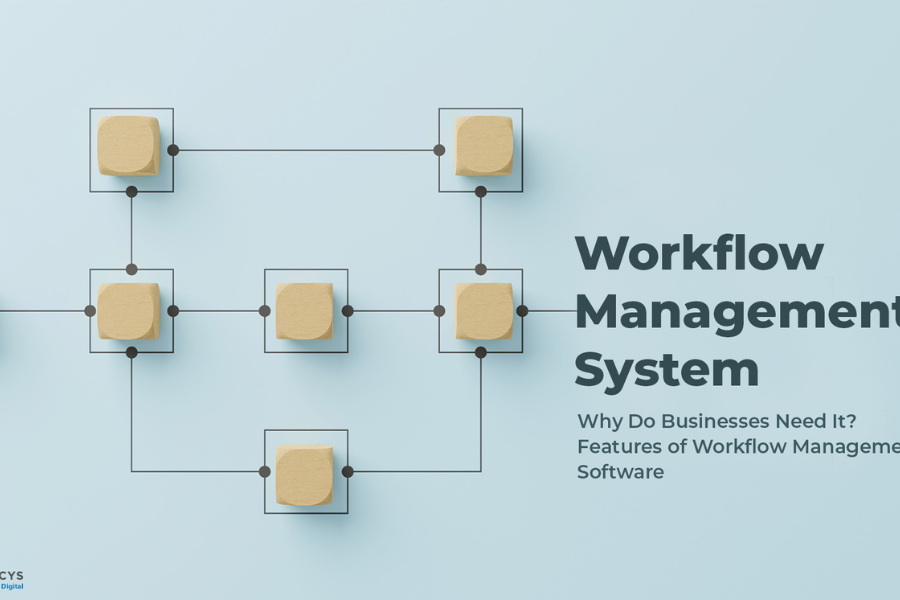The efficiency and productivity of teams hinge on how well tasks are managed and workflows are streamlined. This is where workflow management software comes into play. A robust workflow platform not only organizes tasks but also automates repetitive processes, ensuring that teams can focus on more strategic activities. As the market for these tools expands, choosing the right workflow system can be daunting. Here are the key features to look for in workflow management software to help you make an informed decision.
User-Friendly Interface
One of the most crucial features of any workflow platform is a user-friendly interface. A complicated or cluttered interface can deter team members from using the software effectively. Look for a workflow system that offers an intuitive and easy-to-navigate design. This will reduce the learning curve and increase adoption rates among your team. Features like drag-and-drop functionality, customizable dashboards, and visual process maps can significantly enhance usability.
Customization and Flexibility
Every organization has unique processes and requirements. Therefore, the ability to customize the workflow platform to fit specific needs is essential. Whether it’s modifying existing templates, creating new workflows from scratch, or adjusting user permissions, the software should be flexible enough to accommodate your organization’s nuances. Customization ensures that the workflow system can evolve with your business, adapting to new processes and changes over time.
Integration Capabilities
A workflow system does not operate in isolation. It needs to integrate seamlessly with other tools and software used by your organization. Whether it’s CRM systems, project management tools, email platforms, or collaboration software, robust integration capabilities ensure a smooth flow of information across different systems. This not only saves time but also reduces the risk of errors and data duplication.
Automation and AI
Automation is at the heart of modern workflow management software. The ability to automate repetitive tasks not only saves time but also minimizes human error. Look for features like automated task assignments, notifications, and reminders. Advanced workflow platforms also incorporate artificial intelligence (AI) to predict bottlenecks, optimize processes, and provide actionable insights. These capabilities can significantly enhance the efficiency and effectiveness of your workflows.
Collaboration Tools
Effective workflow management hinges on seamless collaboration among team members. Features like real-time collaboration, file sharing, and communication tools (such as chat or video conferencing) are indispensable. A good workflow system should also support role-based access, allowing team members to see only the information relevant to them. This not only enhances security but also ensures that everyone is on the same page.
Reporting and Analytics
To continuously improve processes, it’s essential to have detailed insights into workflow performance. A robust workflow platform should offer comprehensive reporting and analytics features. These tools can provide metrics on task completion times, identify bottlenecks, and measure overall productivity. Customizable reports and dashboards enable managers to make data-driven decisions and optimize workflows for better outcomes.
Mobile Accessibility
In an era where remote work is becoming the norm, mobile accessibility is a key feature of any workflow management software. Team members should be able to access and manage workflows from their mobile devices, ensuring continuity and flexibility. Mobile apps or responsive web designs can empower employees to stay productive, irrespective of their location.
Scalability
As your business grows, your workflow system should be able to scale with it. Look for software that can handle an increasing number of users, tasks, and processes without compromising on performance. Scalability ensures that the workflow platform remains a valuable tool, even as your organization expands and evolves.
Security and Compliance
With the increasing importance of data security and privacy, choosing workflow management software with robust security features is non-negotiable. Look for features such as data encryption, user authentication, and regular security updates. Additionally, the software should comply with industry standards and regulations, ensuring that your organization remains compliant with relevant legal requirements.
Customer Support and Training
Even with the most user-friendly software, questions and issues are bound to arise. Opt for a workflow platform that offers comprehensive customer support, including live chat, email support, and a detailed knowledge base. Furthermore, onboarding and training resources, such as tutorials and webinars, can help your team get the most out of the workflow system, ensuring a smooth transition and ongoing success.
Cost-Effectiveness
While it’s important to invest in a robust workflow management system, it’s equally crucial to ensure that it provides good value for money. Compare the features and pricing plans of different software options to find one that fits your budget without compromising on essential functionalities. Consider factors like subscription fees, additional costs for extra features, and the potential ROI in terms of increased productivity and efficiency.
Conclusion
Selecting the right workflow management software is a strategic decision that can significantly impact your organization’s efficiency and productivity. By prioritizing features such as user-friendliness, customization, integration capabilities, automation, collaboration tools, reporting and analytics, mobile accessibility, scalability, security, customer support, and cost-effectiveness, you can choose a workflow platform that aligns with your business needs and drives continuous improvement.
Investing in a comprehensive workflow system is not just about managing tasks; it’s about transforming how your organization operates, enhancing collaboration, and ultimately achieving your business goals. As you explore your options, keep these key features in mind to ensure you select the best workflow management software for your team.
Keep an eye for more news & updates on HeadLines.Llc!



